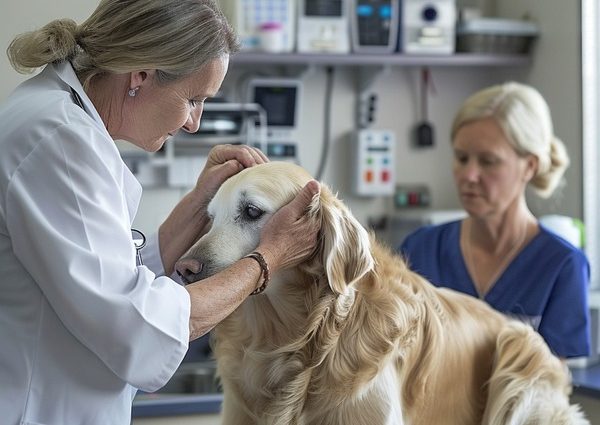If you’re an exotic pet owner, you’ll know these incredible creatures bring a unique charm to your home. But, just like any pet, they come with their own set of responsibilities—especially when it comes to preventing emergencies. Keeping an exotic pet means going the extra mile to ensure their safety and well-being, as they often require specialized care. In this article, we’ll talk about practical steps you can take to dodge any unwanted trips to the emergency room with your unusual sidekick.
Crucial Steps to Prevent Exotic Pet Emergencies
1. Know Your Pet’s Natural Behavior and Environment
The key to preventing any emergencies is understanding your exotic pet’s natural habitat and behaviors. Is your pet nocturnal? Does it prefer a humid environment? These are vital questions to consider. By recreating their natural conditions as closely as possible, you’re less likely to encounter health issues that can arise from stress or an unsuitable living space.
2. Invest in the Right Enclosure and Accessories
Appropriate habitat is essential. Here’s what to focus on:
-
Size: Make sure it’s ample enough for your pet to move and grow.
-
Security: Escape-proofing is non-negotiable. A loose exotic can be a danger to themselves and others.
-
Climate Control: Heating, humidity, and ventilation should match your pet’s requirements.
-
Accessories: Items like branches, rocks, or hiding places to mimic their environment.
3. Understand and Provide Proper Nutrition
A balanced diet tailored to their species is a must. Research what your pet eats in the wild and consult with a vet about replicating that diet at home. Vitamin and mineral deficiencies or excesses can lead to health crises, so precision is key.
4. Regular Health Checks
Regular check-ups are crucial for all pets, whether they’re exotic species or traditional pets like dogs and cats. Veterinarians experienced with exotics can spot early signs of illness and advise on any necessary changes to prevent their condition from worsening. Similarly, dog owners should consider regular visits to a specialist who understands their unique health needs. Scheduling a check-up with an internist for dogs in Pine Grove, PA, can ensure that their canine companions receive the attentive and specialized care they deserve.
5. Promptly Address Any Signs of Illness
Exotic pets can be great at hiding discomfort. Keep an eye out for subtle changes in behavior, appetite, or activity levels. Early detection means a better chance of successful treatment without the need for emergency intervention.
6. Be Prepared for Emergencies
No matter how careful we are, emergencies can happen. It’s important to know in advance where to go for help. Having the number of a facility that specializes in a vet emergency in Pine Grove, PA, or your local area, along with transport arrangements for your exotic pet, can make all the difference when every minute counts.
Understanding the Needs of Different Exotic Pets
-
Birds: Birds need mental stimulation and a lot of space to fly for their well-being. Cages should be large and filled with toys to prevent boredom, which can lead to feather plucking and other stress-related problems. Also, you can learn more about avian exotics and their specialized needs by joining local bird clubs or online communities.
-
Reptiles: Reptiles have specific thermal requirements. Without proper temperature gradients in their enclosures, they can suffer from thermal stress or pneumonia. A reliable thermostat to monitor these environments is a life-saver.
-
Small Mammals: For small mammals like ferrets and rodents, secure caging that prevents accidental falls or injuries is paramount. They need enrichment activities and should be shielded from larger pets in the house to prevent stress or attacks.
Handling and Interaction Tips
Proper handling is another way to ward off emergencies. Here are a few tips:
-
Learn the correct handling technique for your specific pet to avoid injury.
-
Never rush or force interaction, as this can cause stress or aggression.
-
Introduce any new people or pets gradually and under supervision.
Maintaining a Safe Environment at Home
1. Avoid Toxic Plants and Decorations
Many common houseplants and decorations can be toxic to exotic pets. Research before you decorate and invest in pet-friendly alternatives.
2. Keep Electrical Cords and Small Objects Out of Reach
Curious critters may chew on cords or swallow small objects, leading to shock or internal blockages. Be mindful of what’s within reach of your pet’s enclosure.
3. Monitor Interactions with Other Pets
While some exotic pets can coexist with other household pets, it’s vital to supervise these interactions. Misunderstandings between animals can quickly lead to emergencies.
4. Education and Resources
There’s no substitute for knowledge. Subscribe to specialized magazines, join forums, and engage with local exotic pet communities. Also, keep the number of a trusted vet handy. These resources not only provide invaluable advice but can also be a lifeline in a crisis.
Final Thoughts
Exotic pets require devotion and a keen eye for detail. The effort you put into caring for them results in a rewarding bond and a happier, healthier companion. By implementing these precautionary measures and staying informed, you’ll minimize the risk of emergencies and ensure that your unique pet thrives under your care. As pet guardians, the safety and health of our charming companions is in our hands. Let’s give them the best life we possibly can.

